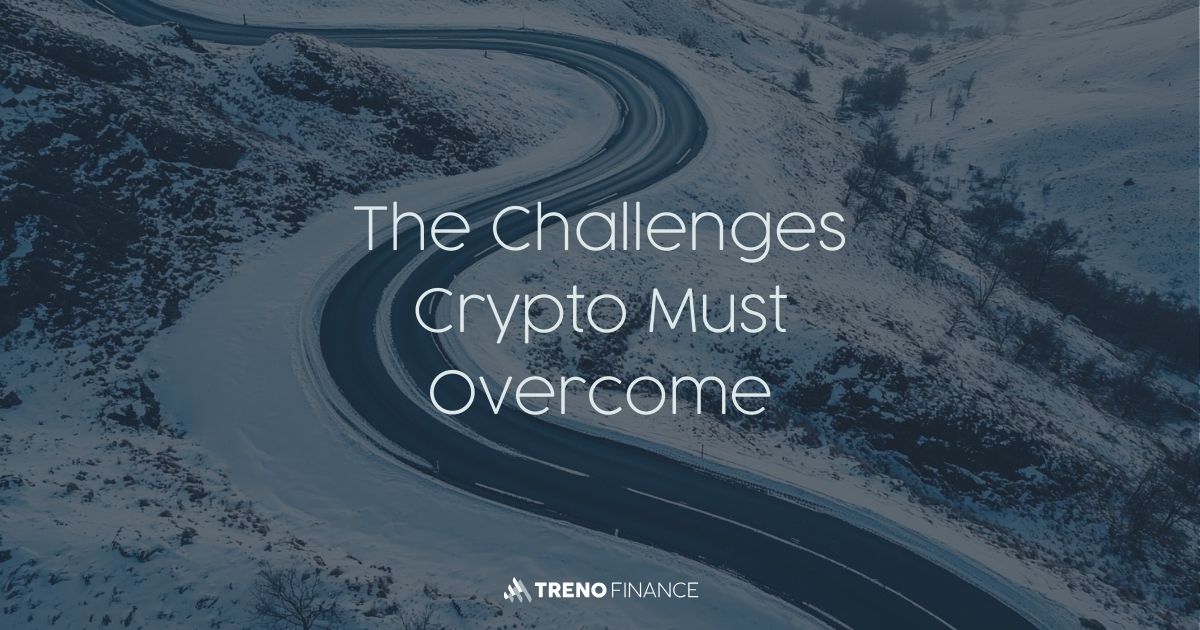Investing in Tokenized Gold, How to Tell Real Value from Crypto Hype
In the booming world of crypto, not everything that glitters is gold. Tokenized assets promise the stability of traditional investments with the flexibility of digital currencies. However, without proper due diligence, you might end up holding worthless tokens instead of tangible value.
But how do you know if you're dealing with the real deal or just fool's gold? With companies like Aurus.io offering tokenized precious metals, it's crucial to dig deeper before you invest your hard-earned money.
In this article, we'll explore how to evaluate the trustworthiness of such companies, offering practical tips and a fresh perspective to help you make informed decisions.
1. Verifying Company Registration and Legal Status
Confirming that the company exists and operates legally is the first crucial step. Official business registries should be checked. If the company claims to be based in the UK, Companies House provides detailed company information, including registration numbers, incorporation dates, and official addresses.
For US-based companies, the SEC's EDGAR database can be consulted. In the case of Aurus.io, searching for their registration details in the relevant national business registry helps verify their legitimacy.
Performing a WHOIS lookup offers additional domain registration details. Tools like Whois.net can verify the domain's ownership, registration date, and contact information, ensuring the company's online presence aligns with its claimed identity.
In our case, Aurus.io is registered to AurusGold Ltd., a company based in the UK, established on 29 September, 2017.
Later the company was renamed to Aurus Technologies on February 26, 2020.
In the crypto space, this is a respectable amount of time, indicating that the company has been working on the topic for quite a while. We don’t want to over-interpret a date, but overall, it can be seen as a positive sign.
2. Checking Regulation and Licensing
Regulatory compliance is crucial for companies dealing with financial assets. It's important to verify if a company is properly registered and regulated through relevant regulatory bodies.
There are typically clear regulations for companies issuing gold in paper form, involving regulatory oversight, custody, audits, and investor protection laws. These regulations may not always apply to newer models like tokenized gold, which is why transparency becomes even more critical in those cases
In the case of Aurus.io, there are no specific regulations governing the tokenization of physical gold. Aurus claims to leverage an international network of partners; however, verifying these partnerships is challenging.
3. Researching the Team Behind the Scenes
A company's credibility often hinges on the expertise and integrity of its leadership. Platforms like LinkedIn can be used to investigate the backgrounds of key executives and team members, helping assess their industry experience and professional track records.
In the case of Aurus.io, the team is easily accessible, with employee profiles linked directly on their main site. Many of these individuals are freelancers, which is common for startups or risk-oriented ventures like this. It's important to keep in mind that this is not a decades-old family business, but rather a dynamic, evolving company.
4. Assessing Transparency and Disclosure
Transparency is a hallmark of trustworthy companies. While this might seem standard, many companies fail to provide such transparency, making it crucial to check for these audits. Reputable firms like CertiK and Hacken, often used by many companies, enhance the legitimacy of these reports, though the potential for behind-the-scenes deals can't be completely dismissed.
Additionally, it's important to download and review the company's whitepaper or official documentation. This should clearly outline the business model, how tokens are backed by physical assets, and the mechanics of their platform. Together, the whitepaper and audits provide key insights into the company's transparency and operational integrity.
Aurus.io does well in this regard by displaying the whitepaper and audits of their contracts on their website.
Whitepaper Link
Contract Audit
5. Evaluating Financial Stability
Assessing a company's financial health can provide valuable information regarding its long-term viability. Key financial details, such as assets, liabilities, and overall performance, can often be found in financial statements or annual reports available on the investor relations page or through direct requests. For companies like Aurus.io, analyzing this data provides insights into their stability and growth potential.
In our research, we found Aurus listed in an official UK company register. Their last financial accounts were filed for the period ending 30 November 2023, with the next set due by 31 August 2025.
The Companies House filings provide valuable insights for this assessment. The most helpful documents for this purpose are:
- AA (Annual Accounts): Offers a comprehensive view of the company's financial health.
- CS01 (Confirmation Statement): While not strictly financial, it provides information on share capital and shareholding structure.
- SH02 (Statement of Capital following an Allotment of Shares): Indicates changes in capital structure.
- RESOLUTIONS: May contain financially relevant decisions such as dividend payments or major transactions.
Concise Financial Summary: Aurus Technologies Ltd (End of Year 2023)- Net liability position: £24,232
- Negative working capital: £50,107
- Main asset: Intangible assets (£25,875)
- Current liabilities (£61,019) far exceed current assets (£10,912)
- Low cash reserves: £567
- Company claims audit exemption as a small company
6. Analyzing Tokenomics and Market Liquidity
Analyzing tokenomics and market liquidity is crucial in the DeFi space. On decentralized exchanges, trading happens through liquidity pools that need to maintain a minimum level of liquidity to ensure stable prices. Without sufficient trading activity, even assets with strong fundamentals can lose value over time. This is particularly important because crypto markets often don’t match the trading volumes of traditional financial markets like those for gold securities. Therefore, assessing liquidity and market participation is vital to ensure the long-term viability of an asset.
In addition to liquidity, a token’s tokenomics and market presence are key indicators of its acceptance and stability. Analyzing trading volumes on platforms such as CoinMarketCap or CoinGecko provides valuable insights into market activity. High trading volumes indicate strong liquidity, making it easier to buy or sell tokens and helping maintain stable prices. It's also essential to evaluate liquidity pools, trading volumes, and the credibility of the exchanges where the token is listed to assess its longevity and viability.
Unfortunately, the tokenomics are not available on the website. One would need to contact the team and request this data. We have not done this as part of this analysis. Generally, this is information that should be made openly available. Especially since this data can be discovered through the nature of the blockchain anyway. It is not practical to represent this dynamic data here. You can view this information on platforms like Coingecko:
Coingecko TGold
7. Validating Partnerships and Third-Party Involvement
Partnerships with reputable organizations play a key role in establishing a company's credibility. It's important to verify these collaborations by checking official announcements on partner websites or reputable news outlets. For example, if Aurus.io claims to work with well-known vaults or financial institutions, confirming these relationships on the partners' sites adds credibility.
A recent development that highlights Aurus.io's focus on building strong partnerships is their involvement in the RWA Liquidity Alliance, a collaboration aimed at increasing liquidity for gold-backed tokens and other real-world assets (RWAs).
This initiative, announced by Aurus.io, underscores their commitment to enhancing market participation and liquidity, crucial for the stability of tokenized assets. Such partnerships are essential for ensuring the liquidity and trustworthiness of these assets, making it easier for investors to enter and exit positions smoothly.
8. Gauging Community Sentiment
Community feedback offers real-world insights into a company's operations. Participating in discussions on crypto forums like Reddit can gauge public opinion. These platforms may reveal user experiences, potential issues, or positive testimonials not apparent from official channels.
However, one should approach community sentiment with caution. The crypto market is often highly irrational, which can also serve as a trading signal if one can understand the underlying social dynamics.
Review platforms such as Trustpilot and CryptoCompare provide user ratings and reviews. Searching for Aurus.io on these platforms helps understand community perceptions and whether there are recurring concerns or praises.
On Trustpilot, Aurus.io has only one review (September 2024), where the user expresses disappointment with the difficulty in liquidating their tokens and a lack of demand, resulting in a significant price difference from the actual gold value. The user also mentions poor customer support after reaching out for clarification.
This is not uncommon in the crypto space. Many retail users are not accustomed to handling financial assets and can quickly become frustrated. A company may not have the time to address every minor issue.
However, it is worth reading reviews carefully. Issues like insufficient support are not a good sign.
9. Understanding the Redemption Process
Since tokens are supposed to be backed by physical assets, knowing how to redeem them is essential. The company's guidelines on the redemption process should be carefully read, usually detailed in their FAQs or support sections. Information on minimum redemption amounts, fees, and steps involved should be noted.
The redemption process is crucial for converting tokens into physical metal, and the Aurus.io website lacks transparency regarding the costs and procedures involved. Complex or costly redemptions can significantly affect the value of the investment. Ideally, an efficient redemption process should have a minimal spread-1-3%-from the physical gold price. Larger deviations or difficulties in the redemption process are red flags for investors.
Interestingly, the website also mentions that, in the event of Aurus' insolvency, investors should not be concerned about the value of their tokens. However, it does not provide further details about what would happen in such a scenario.
Overall, the lack of clear information about the redemption process is a concern. Investors should seek detailed clarification before committing their funds.
10. Looking for Legal Troubles
Legal issues can be significant red flags. Public records should be searched for lawsuits or regulatory actions involving the company using tools like PACER in the US or CourtListener. Staying updated with news aggregators like Google News helps catch recent developments or controversies.
Investigating any legal issues Aurus.io may have faced assists in assessing potential risks. A company embroiled in legal battles may pose a higher risk to investors.
No recent news could be found about Aurus.io. Overall, the company appears to be relatively unknown or, as is common in the crypto space, not of significant interest to users at this time.
11. Scrutinizing the Business Model and Token Mechanics
Ensuring each token is genuinely backed by the corresponding amount of physical precious metal is critical. Third-party audit reports or certificates confirming asset backing should be sought. Token issuance and circulation can be verified using blockchain explorers to see if they align with the company's claims.
Monitoring the token's price stability compared to the underlying metal using tools like GoldPrice.org and price charts on CoinMarketCap helps identify significant deviations that may indicate issues like depegging. Confirming Aurus.io's asset backing and tracking price alignment assists in assessing investment reliability.
While the straightforward business model is appealing, it's crucial not to overlook important details. The current small scale of operations makes it challenging to fully evaluate long-term stability and risks.
12. Final Assessment
Investing in RWA-backed crypto assets involves opportunities and risks that should be carefully considered. Diversifying investments mitigates risk by avoiding overexposure to a single asset or company. Independent research using multiple sources beyond the company's information helps form an objective view.
Based on this analysis, readers may want to explore various alternatives and conduct further comparisons.
We refrain from providing a numerical risk assessment in this article. For quantitative analyses, we recommend utilizing our specialized risk management tools, as risk assessments are dynamic and may change over time.
The aim of this article is to outline a general approach to risk evaluation and to foster a healthy level of skepticism.
While there are no definitive warning signs that would completely rule out an investment in Aurus.io, certain uncertainties persist.
When considering investing larger amounts of money, factors such as current regulatory oversight, potential safeguards in the event of bankruptcy, and the company's equity structure should be taken into account to inform your decision.






